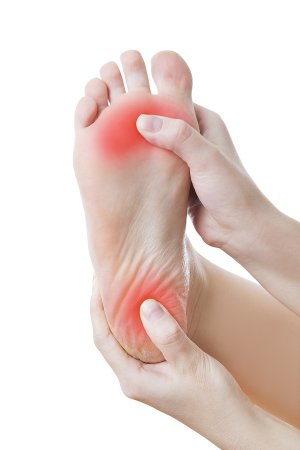FAQs About Neuromas

If you’re suffering from foot pain, a neuroma could be to blame. Neuromas, which are also known as pinched nerves or nerve tumors, are benign nerve tissue growths that often occur between the third and fourth toes, typically in women. If you’re experiencing foot pain, see your podiatrist in Sugar Land to get a diagnosis and start treatment. Here are the answers to some questions that you may have about neuromas.
What Causes Neuromas?
Foot specialists are not sure exactly what causes neuromas, but there are some factors that seem to increase the risk. Trauma that damages nerves in the feet could cause inflammation that leads to neuromas. Repetitive motions that put a strain on the region of the foot usually affected by neuromas can also increase the risk. Wearing shoes that pinch the toes or put pressure on the forefoot also seems to raise the odds of developing neuromas. These include pointed-toe shoes and high heels.
What Are the Symptoms?
Pain in the forefoot and between the toes is the most common symptom of neuromas. Some people also experience swelling between the toes. Pain, tingling, and numbness may also affect the ball of the foot, particularly when you take steps. The pain can become severe with movement and will often get worse when left untreated.
What Treatments Are Available?
Treatments vary depending on the severity of your symptoms. If you see your foot specialist at the first sign of symptoms, conservative, non-invasive treatments are usually effective. Padding and taping the ball of the foot can help, as can custom orthotic devices that control your foot functioning and prevent you from aggravating the condition. Sometimes, anti-inflammatory medications and cortisone injections can also ease the pain. Wearing wide-toe box shoes and avoiding high heels is also necessary.
If these treatments are not successful or your neuroma is diagnosed in an advanced state, then surgical treatment may be needed. During surgery, the affected nerve tissue is removed to cure the condition.
